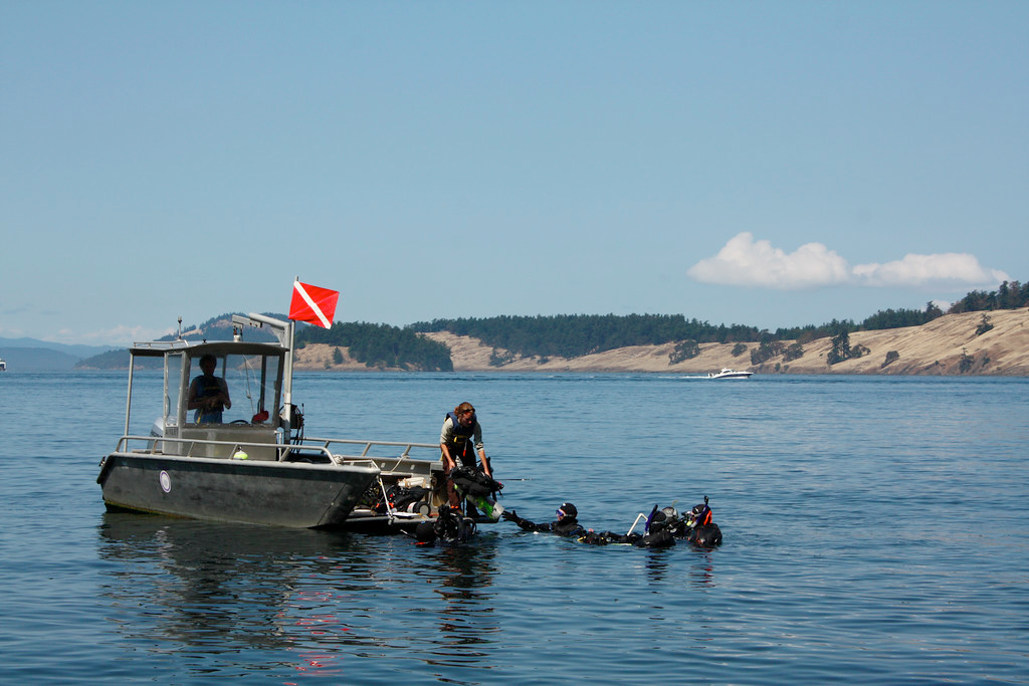Diver certification and requirements
UW Scientific Divers come from various backgrounds and engage in many types of scientific activities underwater. UW divers can be staff, faculty, students or volunteers affiliated with the University. Because they are diving as part of their employment, all divers must meet the requirements of the OSHA Scientific Diving Exemption and follow the UW’s Scientific Diving Safety Manual.
See the requirements and steps to become a UW Scientific Diver in the Requirements for Scientific Diver Certification. This document includes links to the diver registration form, medical evaluation form, and other required forms needed for diver certification.
As a diver, you are required to record and maintain your dive logs and personal data on the AAUS Dive Log Database.
Medical qualification is an essential component of obtaining and maintaining Scientific Diver Certification. Dive physicals must be coordinated through the Employee Health Center. To begin the process for your dive physical, the Employee Health Center will need some initial demographic information. Please complete the intake form. If you have any questions, please contact the Employee Health Center at 206.685.1026 or emphlth@uw.edu.
If you are a visiting diver from another AAUS organization, you must provide a Letter of Reciprocity and proof of workers’ compensation coverage before conducting dives under the auspices of the University of Washington, including diving at Friday Harbor Labs. Non-AAUS divers must contact the UW diving safety officer to discuss eligibility.
